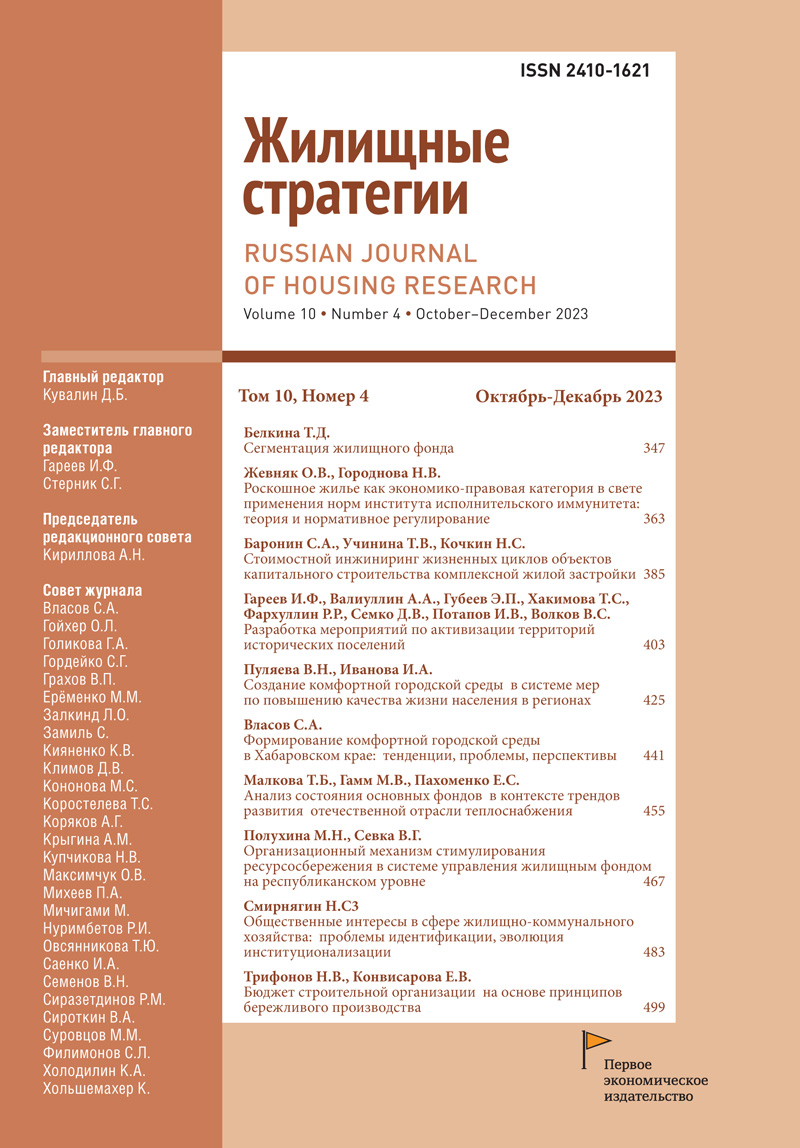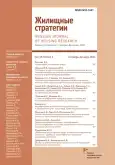Russian Journal of Housing Research
О журнале
Журнал посвящен исследованиям в области формирования жилищной стратегии, обеспечивающей оптимальную структуру жилищного строительства и жилищного фонда, удовлетворяющей потребностям различных категорий граждан. В журнале публикуются обзорные и оригинальные статьи, содержащие результаты отечественных и зарубежных исследований и практической деятельности в области развития рынка жилой недвижимости и жилищного строительства. Рассматриваются актуальные вопросы государственного регулирования жилищной политики, механизмы государственно-частного партнерства, а также региональные особенности жилищной сферы.
Главная цель журнала – ознакомление с результатами научных исследований в области решения жилищного вопроса и дальнейшее их обсуждение.
Официальный сайт журнала: - https://1economic.ru/journals/zhs
Журнал включен в Перечень ВАК
(Дата включения: 23.06.2017)
Статьи публикуются по следующим специальностям ВАК:
- 5.2.3. Региональная и отраслевая экономика (экономические науки),
- 5.2.6. Менеджмент (экономические науки)
Индексация
- РИНЦ
- CrossRef
- Google Scholar
- EBSCO
Языки публикации
- метаданные: русский, английский
- полный текст: русский, английский
Периодичность выхода
- 4 выпуска в год
Current Issue
Vol 10, No 4 (2023)
Articles
Housing stock segmentation
Abstract
 347-362
347-362


Luxury housing as an economic and legal category in the light of the application of the institute of executive immunity norms: theory and regulation
Abstract
 363-384
363-384


Cost engineering of the life cycles of investment objects of complex housing development
Abstract
 385-402
385-402


Development of measures to activate the territories of historical settlements
Abstract
 403-424
403-424


Creating a comfortable urban environment in the system of measures to improve the quality of life in the regions
Abstract
 425-440
425-440


Comfortable urban environment in the Khabarovsk Territory: trends, problems, and prospects
Abstract
 441-454
441-454


Fixed assets of heat supply in the context of trends in the development of the domestic heat supply industry
Abstract
 455-466
455-466


Organizational mechanism for stimulating resource conservation in the housing stock management system at the republican level
Abstract
 467-482
467-482


Public interests in housing and communal services: problems of identification, evolution of institutionalization
Abstract
 483-498
483-498


Construction company budget based on lean manufacturing principles
Abstract
 499-515
499-515











